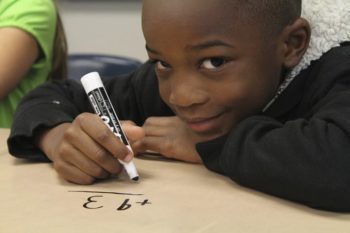 Performances Document Student Learning
Performances Document Student Learning
Measuring Academic Progress series, Part 3 of 3
Welcome to another school year of changed schedules and routines as our students modify their daily lives in response to social distancing and the coronavirus. Most students will be asked to use alternative assessment strategies that include authentic performances in learning.
Alternative Assessment Examples
RUBRICS: Scoring scales for assessing learning using a defined set of criteria ranging from spelling to creativity
CHECKLISTS: A register of essential goals and learning outcomes during learning
LEARNING CONTRACTS: Agreements between students and teachers that describe mutual learning goals, strategies for achieving them, and expected outcomes of learning
SELF ASSESSMENT: Review of learning when considering evidence of learning, progress towards mastery, lingering confusion, and a plan of next steps to improve outcomes
PEER REVIEW: Provides an alternative perspective on learning that relies on rubrics, checklists, or open-ended prompts for feedback and advice
CONCEPT MAP: Graphic models of learning that illuminate the progression of knowledge from essential content, to applications, and creative/constructive processes of learning
PORTFOLIOS: Compilations of learning in an evidence-based system of process, progress, and outcomes [Read more…]

Laura Greenstein has been an educator for over 30 years serving as a teacher, department chair, and school leader in multiple grades and subjects. She combines this background with her experience as a school board member and professional development specialist to bring fresh and original ideas to educators about teaching, learning, and assessing. She consults with schools and districts and presents at workshops and conferences locally and nationally. As an adjunct professor at the University of Connecticut and the University of New Haven, she teaches Human Development and Assessment to undergraduate and graduate students and more recently, Teaching, Learning, and Assessing with Technology in the 6th year Digital Literacy program. She has a B.S. from the University of Connecticut, an M.S. from the State University of New York at Oneonta in education, a 6th year from Sacred Heart University in administration, and an Ed.D. from Johnson and Wales University in Educational Leadership. Her website, http://www.assessmentnetwork.net, is a valuable source of information on issues and topics in assessment. She is the author of multiple books on assessment including What Teachers Really Need to Know About Formative Assessment, Assessing 21st Century Skills: A Guide to Evaluating Mastery and Authentic Learning, Restorative Assessment: Strength-Based Practices to Support all Learners, and Sticky Assessment: Classroom Strategies to Amplify Student Learning.
 1. Tests and Assessments Are Not the Same
1. Tests and Assessments Are Not the Same